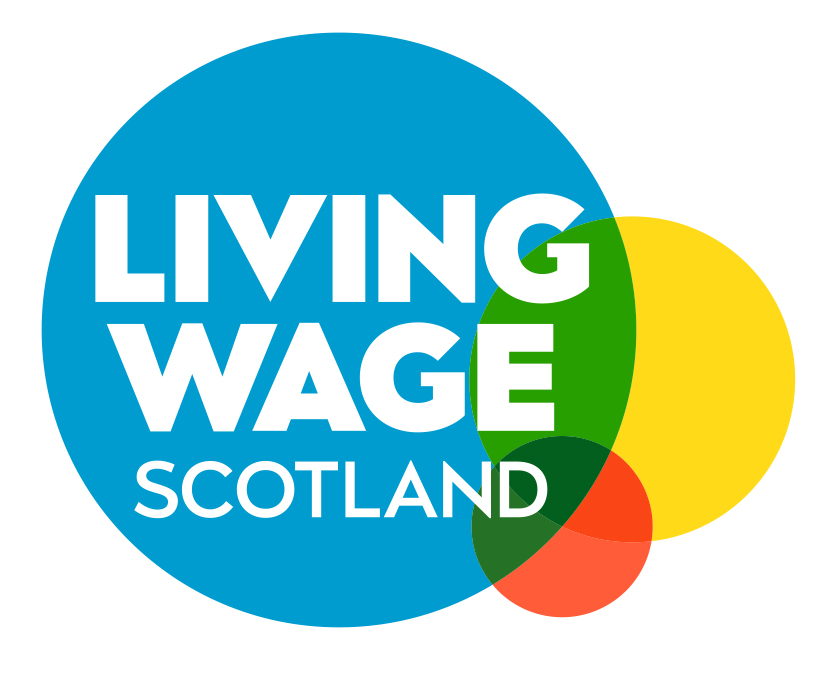By Anna Hirvonen, Living Wage Scotland
The recent KPGM analysis has revealed that significant progress has been made on the real Living Wage in the past year. There are now 380 000 jobs paid below the real Living Wage in Scotland, this is down from 473 000 the previous year. The campaign has had a huge impact on tackling in-work poverty and since 2011, £183 million in extra wages has gone into workers’ pockets in Scotland as a direct result of Living Wage accreditation. While all of this is positive news there is still much to be done. Having recently joined the Living Wage Scotland team after completing my Masters in Gender History I was keen to see if the KPMG findings represented a positive move for gender equality in the workplace. A closer look at the findings shows that women continue to account for most low-paid workers. Indeed, women’s employment remains disproportionately insecure and 24 per cent earn below the real Living Wage in the UK, compared to 15 per cent of men.
We often see responses to the gender pay gap focused on “breaking the glass ceiling” or enabling women to take on more senior roles. Whilst this response is vital, if we are to address the pay gap in Scotland, it is also important to tackle women’s over representation in low-paid and insecure work. Women make up 55 per cent of workers on zero-hour contracts and over half (52 per cent) of temporary workers are female. Additionally, part-time work, term time work and job shares, those flexible working options associated with reduced hours, continue to be more widely used by women, with little sign of change. Most part-time work is found in the lowest paid jobs and sectors, with around 38 per cent of part-time work paid below the real Living Wage. Furthermore, women are disproportionately concentrated in sectors like social care, retail, catering, cleaning and hospitality, where issues of low pay and insecurity are as persistent as they are prevalent. The insecure nature of these work patterns can also restrict women’s opportunities to access training which can create structural and cultural barriers to move to higher paying roles.
Unpredictable patterns of work also disproportionately lead to practical difficulties for women around childcare or other caring responsibilities. Additionally, single parents, 91% of whom are women, often must juggle several low paid jobs to make ends meet. Overall, this means that nearly half (48 per cent) of lone-parent households are living in poverty, compared to 24 per cent of couple household. There is an inextricable link between women’s poverty and the growing issue of child poverty, and thus tackling women’s poverty is a necessary aspect of tackling child poverty
A study by Cardiff Business School has indicated that the payment of the real Living Wage in female dominated and insecure sectors such as cleaning or hospitality is an important mechanism in lifting women out of in-work poverty, where earning the real Living Wage has a substantial positive effect on women’s weekly earnings.
Living Wage Scotland have also found that women in part-time work stand to benefit the most from Living Wage accreditation. An analysis of a sample figure of 13,122 workers from a 2019 survey found that women in part-time work made up 66 per cent of the employees uplifted to the real Living Wage. In the light of these findings, Living Wage Scotland have developed a specific industry focus to engage with more employers in typically low pay industries such as child care, cleaning and hospitality. As part of this industry focus, Living Wage Scotland has established a hospitality steering group, which brings together accredited employers from within the industry to shape the project moving forward and encourage more hospitality employers to pay the real Living Wage. Earlier this year, the Living Wage Foundation also launched a Living Hours campaign which hopes to give workers and their families the stability and security that they need. Living Hours encourages employers to give at least four weeks’ notice period for shifts and to provide contracts that reflect actual hours worked by employees. This allows families to better plan for childcare arrangements and budget for the month ahead, which could have particular benefits for women who have disproportionate responsibility for childcare. When employers engage with such initiatives as Living Wage employer accreditation and the Living Wage Hours standard, significant benefits can be returned for women and their families.
There is also a need for a shift in existing attitudes towards certain types of work. Some jobs, such as care or cleaning, continue to be marred by the stigma of being “women’s work” and are consequently undervalued in the labour market. In practice, this means that women will receive lower rewards from investing in education or other training. Although payment of the real Living Wage in these sectors is an important starting point, ultimately it needs to be accompanied by measures to address the continued economic undervaluation of ‘women’s work’.
Too frequently, there is a presumption against part-time working in senior grades and in male dominated sectors. Consequently, there needs to be a shift in employer responses to flexible working. Currently, only 12% of jobs paying above £20 000 are advertised with flexible working options. This means that women with caring responsibilities may be effectively blocked from applying for such roles, ultimately preventing women’s progression. Further normalisation of flexible working at all levels is still needed across the labour market.
Women’s inequality in the labour market is harmful to individuals and our economy, but it is not inevitable. Solving this inequality requires action from all sectors across Scotland. Tackling low pay is just one part of the action needed yet Living Wage Scotland recognise that women and their families who are locked in poverty as a result of low pay have the most to gain from earning the real Living Wage. We aim to maximise the impact of our work and reach even more women who are disproportionately represented in low paid roles. Furthermore, we will share insights from our work with employers and work collaboratively with organisations campaigning for decent wages and economic equality in Scotland. A core component of a just and gender equal labour market will, of course depend on fair remuneration. Our work directly with employers will continue to make sure as many workers as possible receive at least the real Living Wage.

